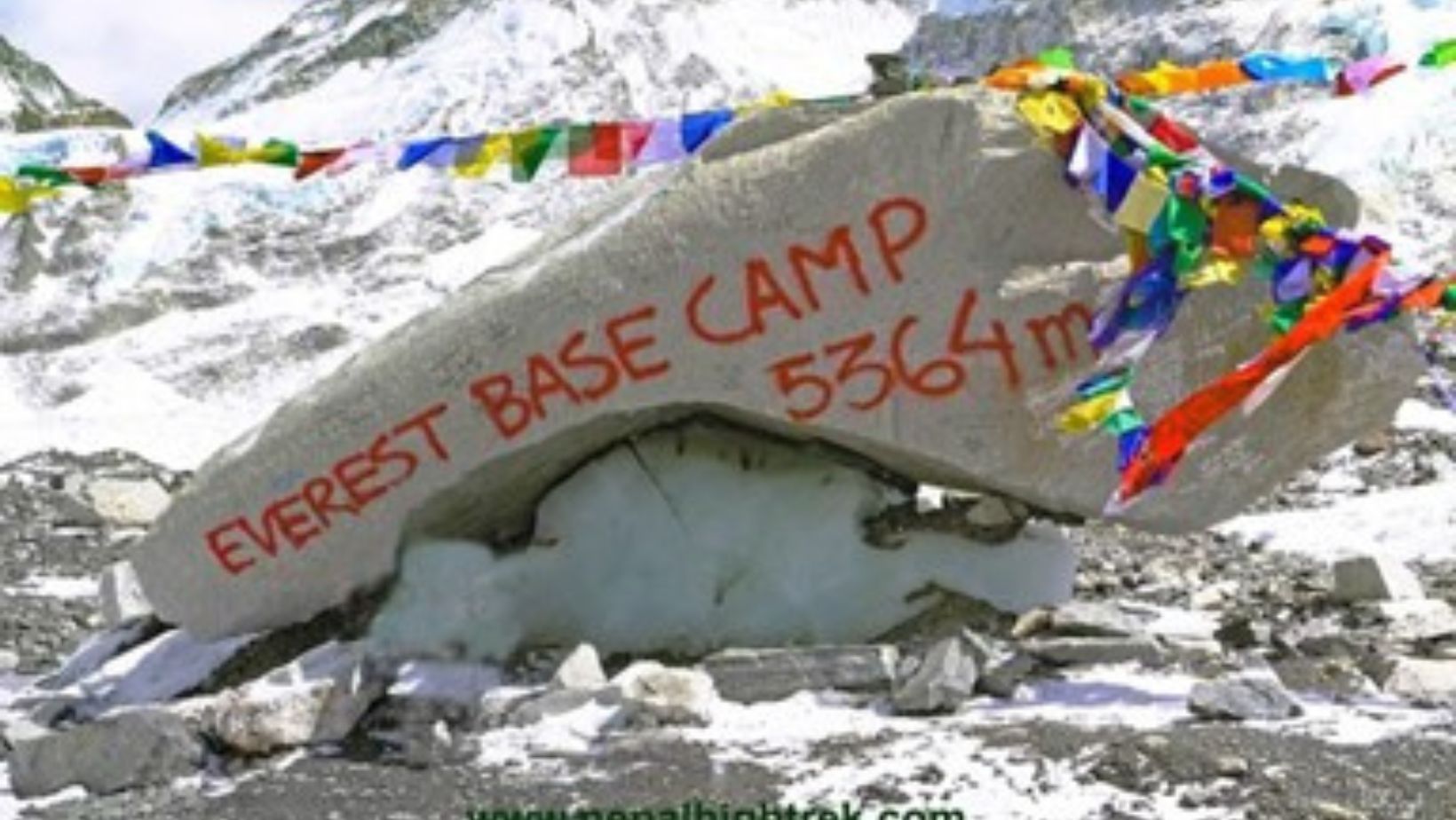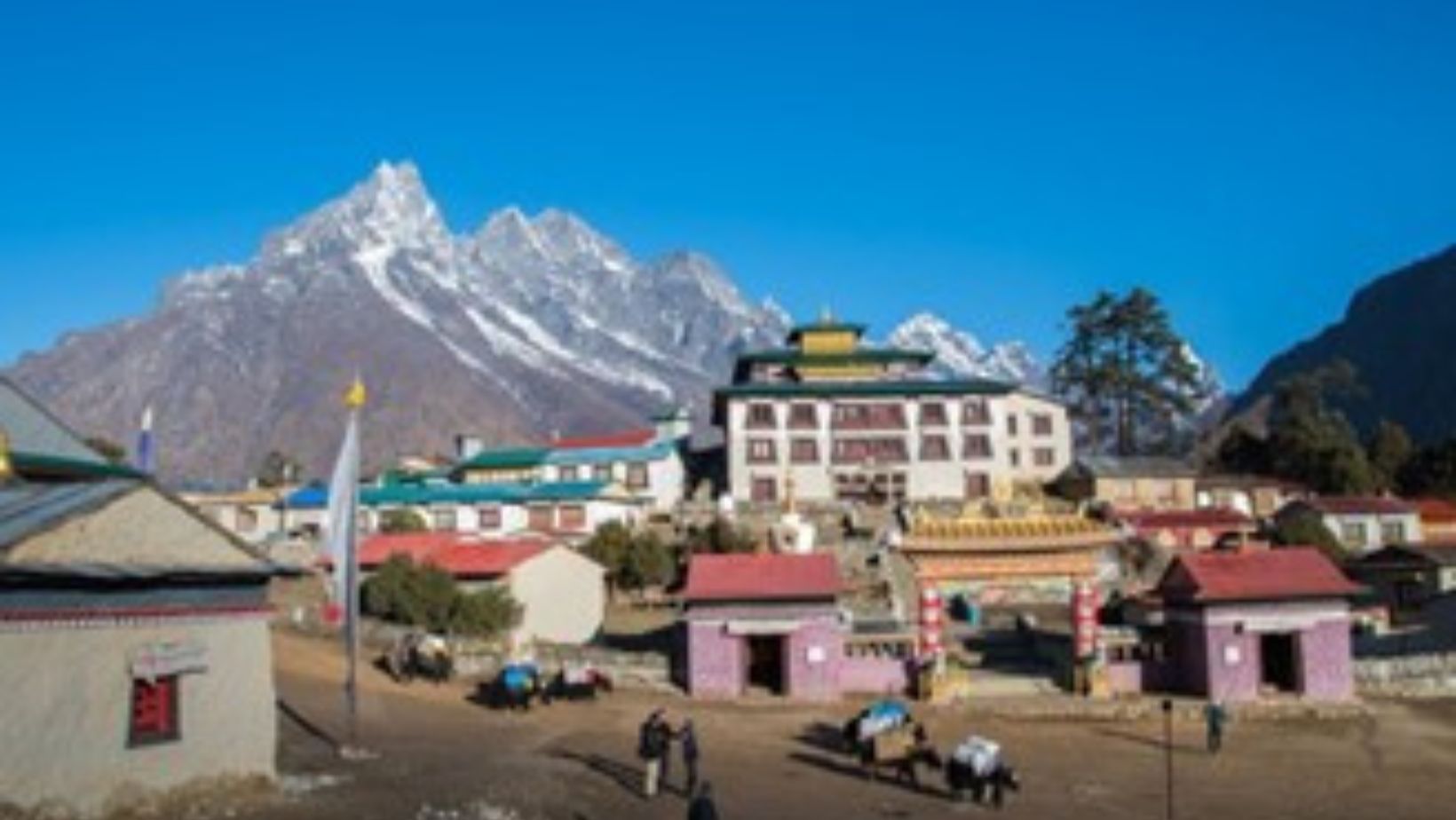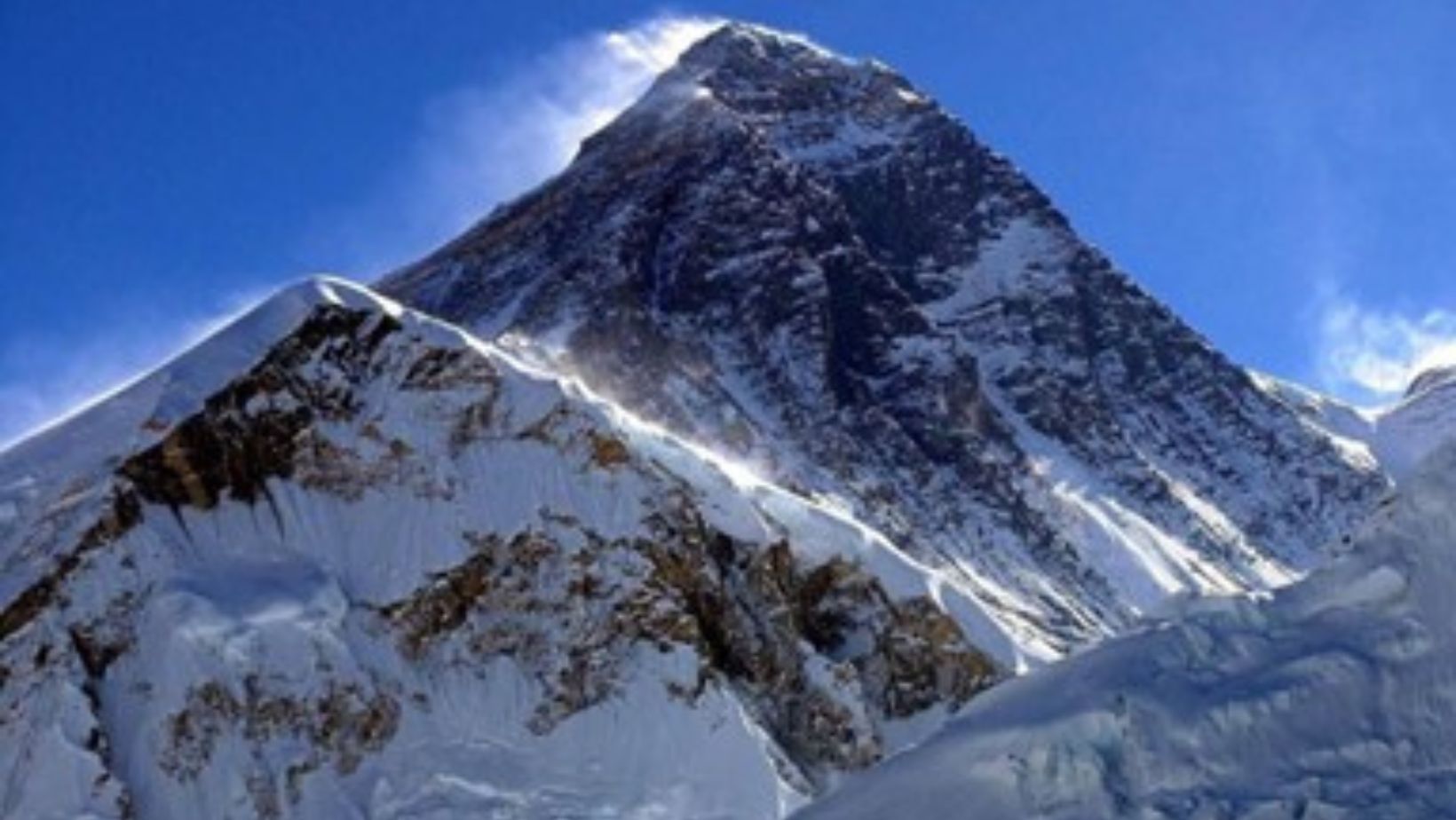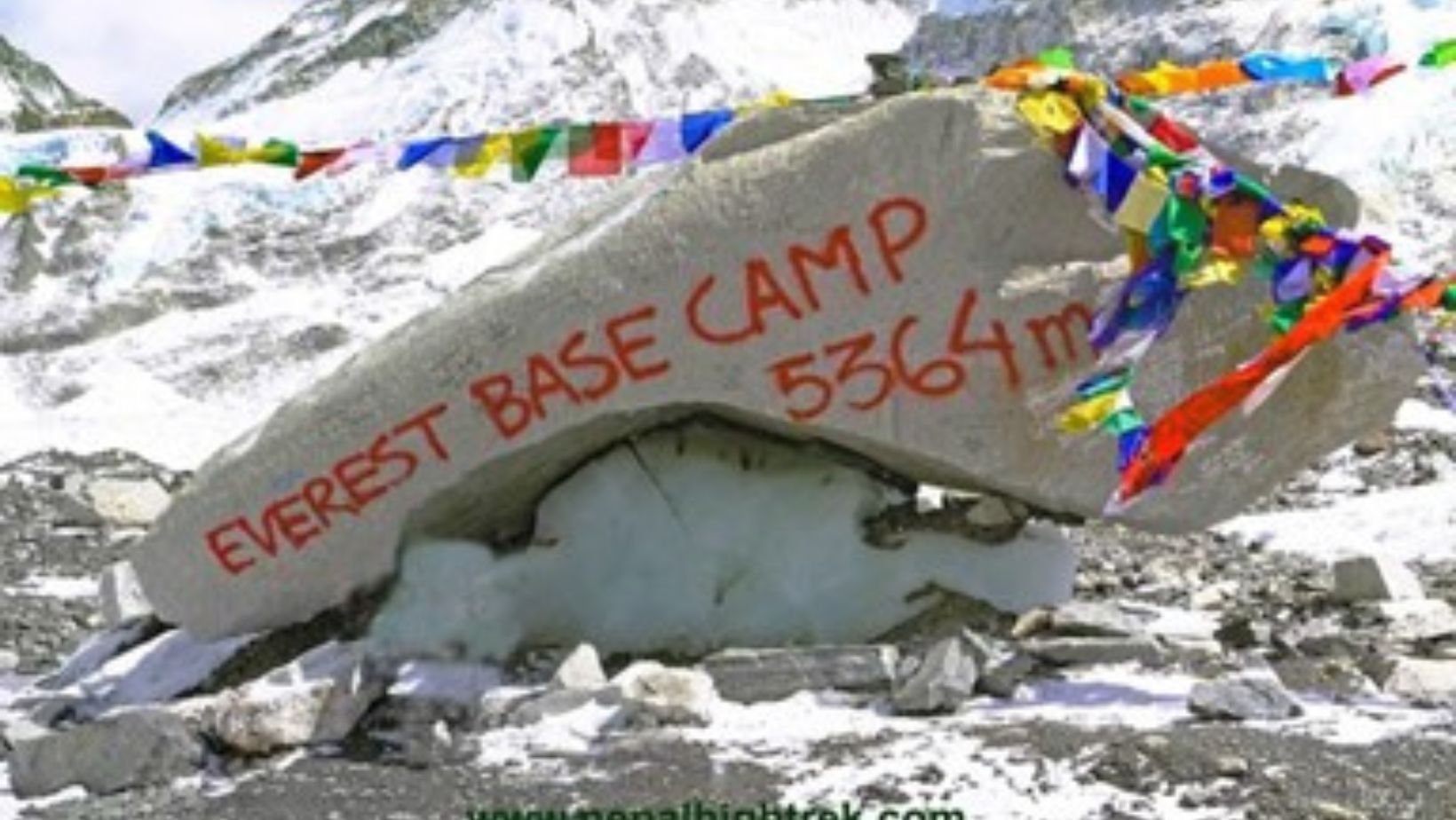
Many dream of visiting Everest Base Camp (EBC), an experience that promises an unforgettable 14-day trek through the Himalayas to the highest peaks in the world. Along the journey, trekkers are treated to stunning landscapes and immersed in a rich culture, constantly pushing their boundaries. So, what exactly makes this trek so extraordinary? Let’s delve deeper.
What Makes The Everest Base Camp (EBC) Trek So Special?
The allure of the Everest Base Camp trek lies in its stunning natural beauty, rich cultural heritage, and the sense of accomplishment it offers. The trail meanders through charming Sherpa villages and lush rhododendron forests, traversing austere alpine landscapes. It offers views of some of the world’s tallest peaks, such as Lhotse, Nuptse, and the majestic Everest.
The journey provides not only a glimpse of the surroundings, but also a risky opportunity to immerse oneself in Sherpa culture. Visitors get to explore ancient monasteries and interact with local communities. This offers them a deep understanding of the Buddhist way of life, which has flourished on this rugged terrain for centuries. Finally, standing at the base of Mount Everest delivers an unmatched sense of achievement, demonstrating one’s determination and resilience.
How Long Does It Take To Hike To Everest Base Camp?
The standard Everest Base Camp trek takes 12 to 14 days. This consists of acclimatization days and the return journey. The trek covers roughly 130 kilometers (80 miles). It begins with a flight from Kathmandu to Lukla, one of the world’s most exciting airstrips.
The usual plan is to dedicate two days for acclimatization, one day at Namche Bazaar and the other at Dingboche. This adjustment period to the high altitude is essential for trekkers. These rest days are vital in preventing altitude sickness, which can affect anyone regardless of their fitness level.
Usually, the journey to Base Camp takes about 8 to 9 days, with an additional 3 to 4 days set aside for the return trip. While the distance may appear short, the high altitude and rugged terrain make it a challenging trek. It’s crucial to take the time to acclimatize and maintain a steady pace.
How Difficult Is The Trek To EBC?
Hiking to Everest Base Camp presents a significant physical challenge. The primary and most notable difficulty is the high altitude, rather than the technical aspects of the trails. The trail starts at a height of 2,860 meters (9,383 feet) in Lukla and reaches its highest point at 5,364 meters (17,598 feet) at the base camp.
Hikers should be ready for extended periods of walking, typically ranging from 5 to 7 hours a day, involving climbing and steep trails. High elevations may induce breathlessness, headaches, and exhaustion. Therefore, it’s crucial to maintain a steady pace and stay well-hydrated. Prior experience in hiking isn’t necessary. However, being physically fit and resilient is important.

Having said that, with determination and practice, most people can manage the trek. Remember to acclimate, proceed slowly, and pay attention to your body’s signals to successfully complete the journey.
What Are Tea Houses Like?
The Everest Base Camp trek is uniquely characterized by teahouses, which are local lodges situated along the trekking routes. These modest yet comfortable accommodations offer an insight into local life and cater to the essential needs of trekkers.
The majority of tea houses offer rooms equipped with beds, blankets, and pillows for two people to share. The amenities provided are simple, including shared bathrooms and group dining spaces. Trekkers can have their meals and keep warm by the stove. The food is typically robust, carbohydrate-rich, and includes dishes like dal Bhat (a lentil soup served with rice), noodles, potatoes, and momos (dumplings).
Tea houses offer comfort, but expectations should be managed. Typically, hot showers are available for a fee, and there may be restrictions on electricity for charging devices. However, the memorable experience is shaped by the warmth of the Sherpa’s hospitality and the camaraderie among trekkers.
What Should I Bring?
A successful Everest Base Camp trek is guaranteed by careful packing. The key is to carry essential items without burdening your backpack too much. Below is a list of must-have items:
In order to manage fluctuating temperatures, it’s crucial to layer your clothing. Start with a moisture-wicking base layer, then add an insulating mid-layer, and top it off with a waterproof outer layer. Remember to include a warm hat, gloves, and a down jacket for the cold nights.
Footwear: It’s essential to have sturdy, well-fitting hiking boots that offer good ankle support. Make sure to break them in before the trek to prevent blisters.
Accessories: Ensure sun safety by wearing UV-protecting sunglasses, a wide-brimmed hat, and applying sunscreen. It’s also recommended to have a top-quality sleeping bag rated for -10°C (14°F) or lower.
Health and Safety: A primary resource kit is crucial. It should contain medicines for altitude sickness, treatments for blisters, and basic painkillers. Furthermore, to guarantee safe drinking water, water purification tablets or a filter can be included.
Other Necessities: You will need a sturdy backpack, trekking poles, and a headlamp with extra batteries. A refillable water bottle is also essential. Consider bringing snacks such as energy bars and nuts for immediate energy replenishments.
Do I Need A Porter And Guide?
Trekking to Everest Base Camp independently is an option, however, it is strongly suggested to hire a guide and porter. A guide does more than just lead the way on the trail; they provide valuable insights into the local culture, geography, and history. Additionally, they can offer assistance during emergencies and provide strategies for acclimatization.
Conversely, porters carry your heavy equipment, enabling you to hike with just a light daypack. This not only lessens the physical strain but also enhances your hiking experience. Hiring local guides and porters is beneficial as it bolsters the local economy by providing essential income to the communities situated along the hiking route.
How Much Does The Everest Base Camp Trek Cost?
The cost of the Everest Base Camp trek is not fixed, as it depends on the trekking agency, the level of service, and the season. Generally, the trek can cost anywhere from $1,355 to $2,700 per person. This price includes permits, accommodation, food supplies, guided tours, and domestic flights.

Keep in mind, there are budget-friendly options available. However, lower cost doesn’t necessarily equate to higher quality. Ensure your trekking agency is credible, with well-qualified guides and porters. This will ensure a safe and enjoyable trekking experience.
EBC Trek Costs Start From $1,355 To $2,700 Per Person
As previously stated, the Everest Base Camp trek’s price ranges from $1,355 to $2,700 per person. The cost variation is based on the quality of comfort and services provided. Lower-priced packages typically include basic teahouse accommodation and meals. On the other hand, more expensive packages offer superior accommodations, meals, and private guides.
Researching and selecting a package that aligns with your budget, while guaranteeing safety and comfort, is a smart move. The journey to Everest Base Camp is priceless. A well-planned trek can make a world of difference.
Do I Need Any Permits?
Indeed, trekking to Everest Base Camp necessitates obtaining several permits. The permits required are as follows:
- To enter Sagarmatha National Park, where Everest is located, a Sagarmatha National Park Entry Permit is required. This can be obtained either in Kathmandu or in Monjo, a village situated along the hiking route.
- Permit for Khumbu Pasang Lhamu Rural Municipality: This permit, which has been in effect since 2018, has taken the place of the TIMS card for the Everest region. You can get it in Lukla or Kathmandu. Typically, your trekking agency will arrange these permits for you. Make sure you have all necessary permits before setting out on your solo trek.
Conclusion
The voyage to Everest Base Camp is more than a simple trek. This adventure uniquely challenges both your physical and mental capacities. In return, it presents you with breathtaking landscapes that are among the world’s most stunning. The exhilarating experience of trekking under the shadow of Everest, the welcoming hospitality of the Sherpas, and the overwhelming sense of accomplishment upon reaching Base Camp, make every moment of this journey a story to be shared.
In order to fully benefit from this experience, ensure you are well-prepared. Familiarize yourself with the potential challenges and show respect for the indigenous culture. The trek to Everest Base Camp is a remarkable journey that attracts adventurers with its towering peaks and the opportunity to test one’s boundaries. Nepal High Trek And Expedition Pvt. Ltd., a genuine local trekking business based in Kathmandu, Nepal, offers an array of services including multi-day tours, treks, climbing, and more, catered towards both individual travelers and private groups. You can reach us at [email protected] or through WhatsApp at +977-9851142116.



